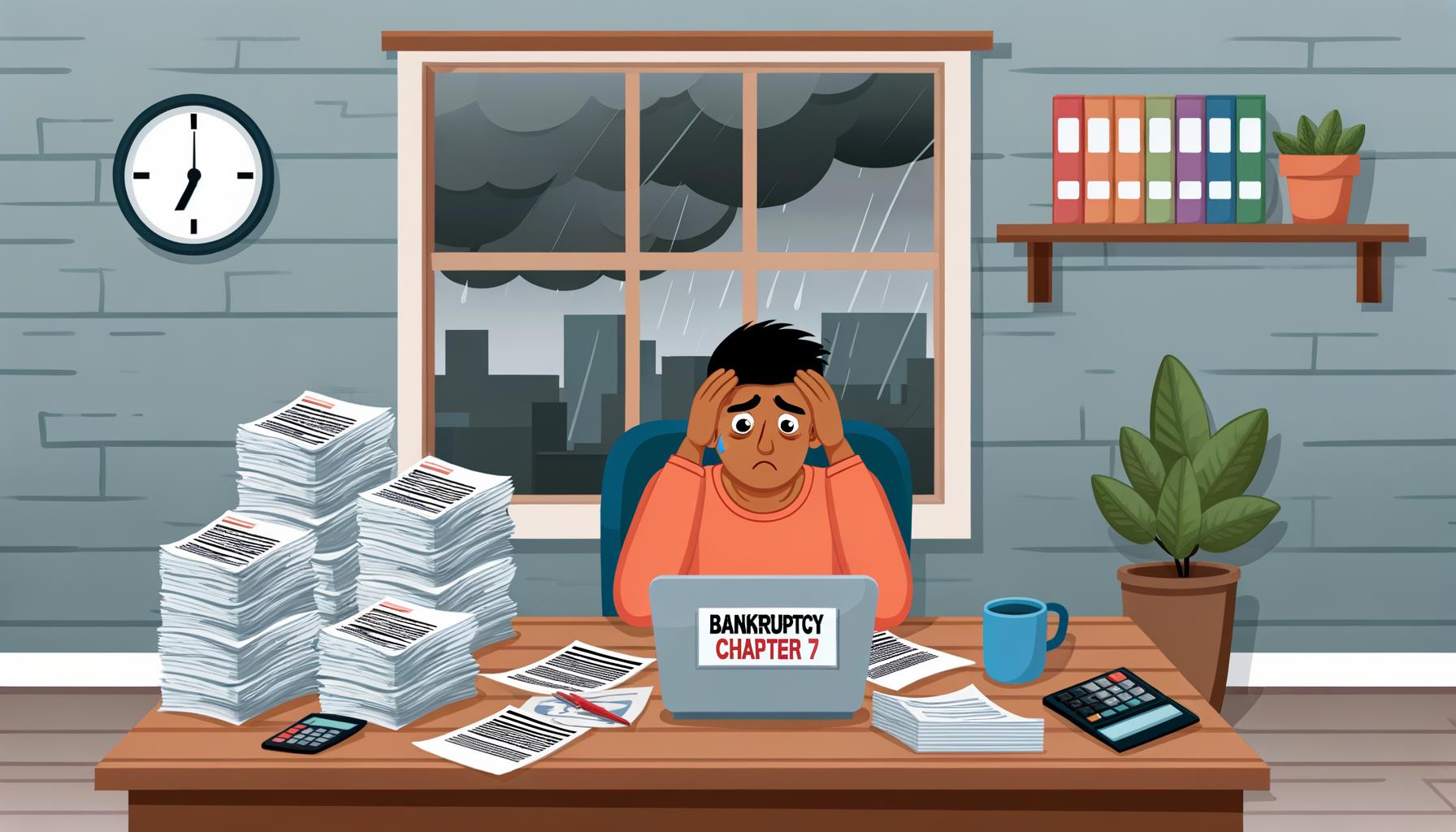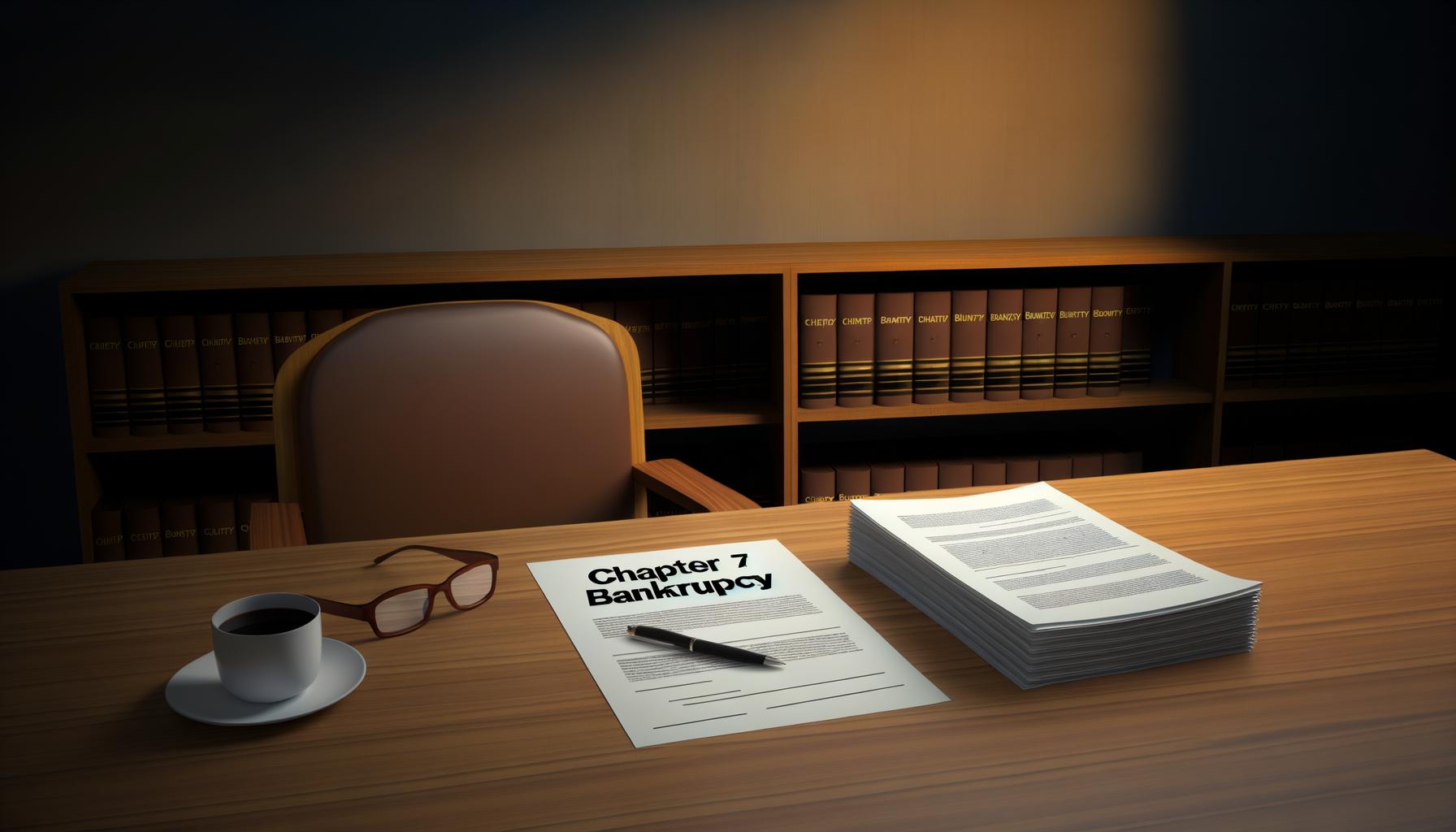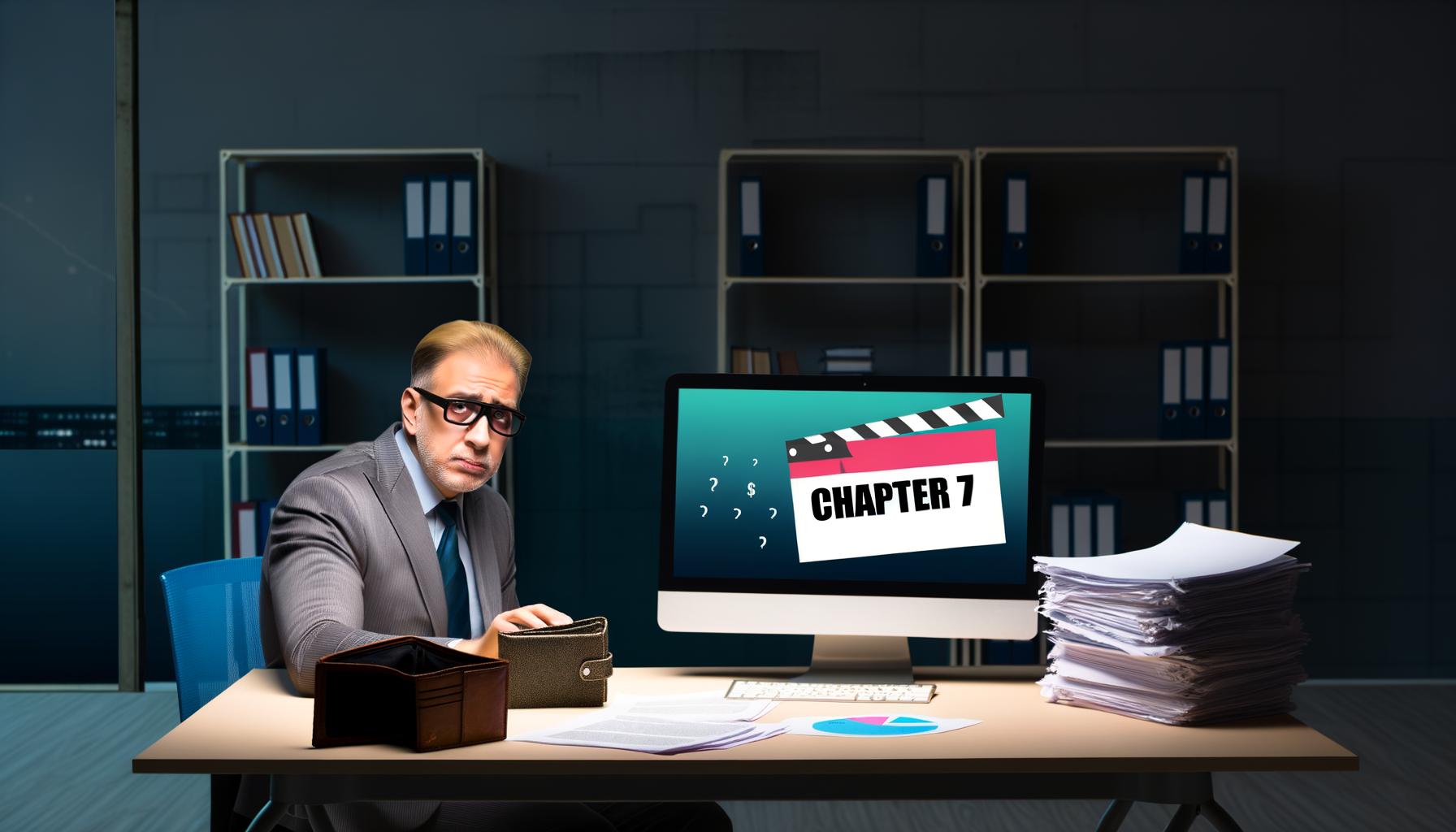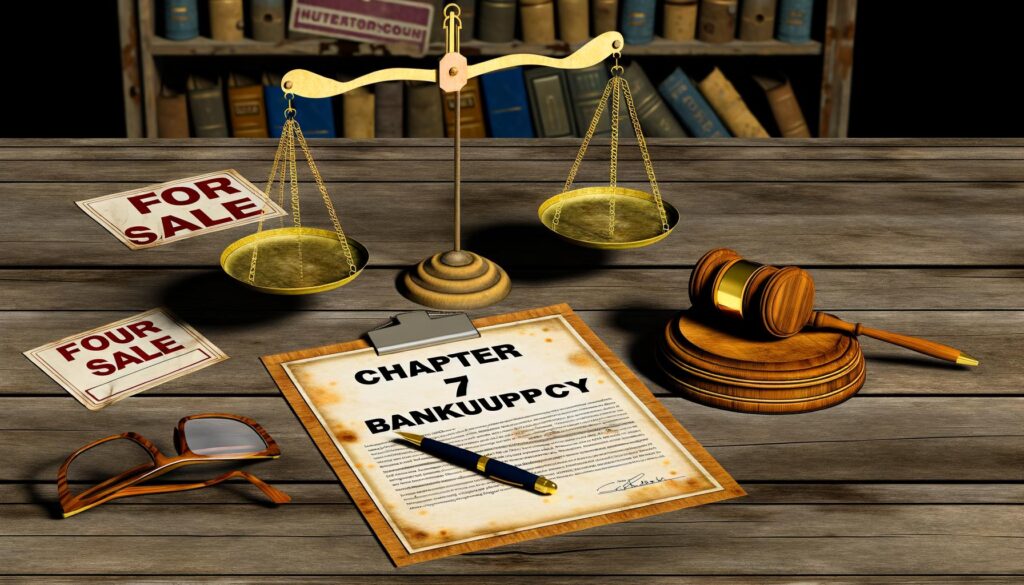Navigating financial hardships can be overwhelming, especially when debts pile up and options seem limited. For homeowners in Brea, understanding Chapter 7 bankruptcy may provide a crucial lifeline. Chapter 7 bankruptcy is designed to offer immediate debt relief and a fresh start by liquidating non-exempt assets to pay off creditors. This process can be particularly beneficial for homeowners who are facing insurmountable debt while trying to maintain their living situation.
Brea homeowners face unique challenges that make debt relief solutions like Chapter 7 bankruptcy especially relevant. The rising cost of living, coupled with unexpected financial setbacks such as medical emergencies or job loss, can turn a manageable mortgage into a looming burden. In such situations, the ability to discharge certain debts quickly through Chapter 7 bankruptcy allows individuals and families to reset their financial standing without losing their homes.
This article explores the myriad benefits that Chapter 7 Bankruptcy offers specifically to Brea homeowners. From understanding the process and eligibility criteria to leveraging exemptions that protect your home and improving your long-term financial outlook, we aim to provide a comprehensive guide on how filing for Chapter 7 bankruptcy could be your pathway out of crippling debt toward renewed financial health.
Understanding Chapter 7 Bankruptcy
When diving into the intricacies of Chapter 7 Bankruptcy, it’s crucial to first grasp its fundamental characteristics. Chapter 7 Bankruptcy, also known as liquidation bankruptcy, allows individuals to have most of their unsecured debts discharged. This process enables homeowners in Brea who are struggling with overwhelming financial burdens to start fresh without the oppressive weight of unmanageable debt. However, it’s not a one-size-fits-all remedy and involves specific steps and criteria that must be met.
Eligibility for filing Chapter 7 Bankruptcy is determined by the means test, which evaluates whether an individual’s income exceeds a certain threshold. The goal is to ensure that only those who genuinely cannot pay off their debts can take advantage of this form of relief. Homeowners must provide detailed financial records, including their income, expenses, and assets. Understanding these prerequisites can be pivotal in determining if Chapter 7 is the appropriate course of action for alleviating debt pressures.
The process of liquidation under Chapter 7 involves appointing a trustee who manages the sale of non-exempt assets. The funds collected from this sale are then used to repay creditors.
It’s essential for homeowners in Brea to know which assets may be exempt during this process, as these exemptions can protect certain properties from being sold off. Additionally, there are significant differences between chapter 7 bankruptcy and other types such as Chapter 13 – while Chapter 7 focuses on liquidating non-exempt assets quickly, Chapter 13 involves restructuring debt over a period of three to five years.
Key highlights include:
- Means Test: A financial threshold that determines eligibility.
- Trustee Involvement: Appointment of a trustee to manage asset liquidation.
- Exemptions: Legal provisions protecting certain personal property from being sold.
By understanding these elements and how they work together within the scope of Chapter 7 Bankruptcy, Brea homeowners can better navigate their financial recovery journey and make informed decisions about their economic futures.
Immediate Debt Relief
The Automatic Stay: A Shield From Creditors
One of the most immediate and compelling benefits Brea homeowners experience upon filing for chapter 7 bankruptcy is the automatic stay. This powerful legal provision halts all collection activities, including phone calls, wage garnishments, and foreclosure actions. The automatic stay offers instant relief and peace of mind to homeowners who have been grappling with relentless creditor harassment. By putting a stop to these aggressive tactics, Brea homeowners can focus on assessing their financial situation rather than constantly battling creditor demands.
Types of Debts Discharged Under Chapter 7
Chapter 7 bankruptcy typically results in the discharge of several types of unsecured debts-meaning debts that are not backed by collateral. For Brea homeowners, common examples include credit card debt, medical bills, and personal loans.
While secured debts like mortgages usually aren’t discharged under Chapter 7, eliminating a significant portion of unsecured debt can free up resources to concentrate on crucial obligations like keeping up with mortgage payments. This shift can be particularly advantageous for those looking to stabilize their financial footprint while retaining ownership of their property.
Specific Benefits for Brea Homeowners
Brea homeowners uniquely benefit from the debt discharge provided by Chapter 7 bankruptcy through an increase in disposable income that can be redirected toward necessary living expenses and home maintenance costs. Many residents find that being relieved from the pressure of mounting credit card bills and overdue medical payments allows them to reallocate funds more efficiently-potentially avoiding eviction or foreclosure scenarios altogether.

Additionally, for those whose financial woes stem from economic conditions linked to local industries or community-specific downturns, the reset offered by Chapter 7 ignites new possibilities for recovery and long-term stability within the Brea housing market.
Protecting Your Home With Exemptions
Filing for chapter 7 bankruptcy can initially seem daunting, especially when contemplating the future of your home. However, California has specific bankruptcy exemptions that can help Brea homeowners safeguard their primary residence. Understanding these exemptions is essential to avoid losing valuable assets during the liquidation process. One of the most significant protections available is the Homestead Exemption, which allows homeowners to exempt a certain portion of their home equity from creditors.
California provides two sets of exemption schemes: System 1 and System 2. Homeowners generally benefit more from System 1 for its robust provisions under the Homestead Exemption. As of the latest updates, you can protect up to $600,000 in home equity depending on various factors such as age and disability status. This substantial exemption means that many Brea homeowners will retain full ownership of their home even after filing for chapter 7 bankruptcy.
Real-life examples help illustrate how these exemptions come into play. Take, for instance, a Brea homeowner who has $500,000 in equity in their property and opts to file for chapter 7 bankruptcy due to insurmountable debt.
Utilization of System 1’s Homestead Exemption enables them to keep their home while discharging other unsecured debts like credit card balances and medical bills. Another example could involve an elderly couple with a similar amount of equity; they would also be well-protected under these provisions, allowing them to maintain stability in their housing while resolving financial difficulties.
- Homestead Exemption: Protects up to $600,000 in home equity based on eligibility.
- System Option: Choose between System 1 and System 2 based on individual needs.
- Eligibility Factors: Age, disability status, and marital status can affect exemption amounts.
Understanding and properly applying these exemptions are pivotal steps in navigating chapter 7 bankruptcy successfully while protecting what is often one’s most valuable asset-their home.
Improving Financial Outlook
After filing for Chapter 7 bankruptcy, Brea homeowners have the opportunity to rebuild their credit and establish a more stable financial future. It is crucial to create a strategic plan that encompasses disciplined budgeting, consistent bill payments, and prudent use of credit.
One critical step in this process is obtaining a secured credit card. Issuers often approve these cards based on an upfront security deposit, thus providing individuals with an avenue to re-establish their creditworthiness by demonstrating responsible use over time.
Developing long-term financial planning habits is another essential aspect of improving one’s financial outlook post-bankruptcy. Brea homeowners should focus on creating and sticking to a realistic budget that includes savings for emergencies and future goals. Tracking expenses meticulously can prevent overspending and help identify areas where costs can be minimized. Consulting with a financial advisor might also provide tailored guidance in crafting strategies around investments, savings, and retirement plans.
Several Brea homeowners who have gone through Chapter 7 bankruptcy report significant improvements in their financial situations. For example, some were able to secure better-paying jobs or even change careers due to reduced debt burdens.
Others have successfully purchased homes again within five to seven years after their bankruptcy discharge, this time equipped with improved knowledge and habits surrounding personal finance management. The chapter 7 bankruptcy process, while initially daunting, has empowered many individuals to make lasting positive changes in their financial lives.
| Step | Description |
|---|---|
| Secured Credit Card | Obtainable with a security deposit; helps rebuild credit by showing responsible use. |
| Create Budget | Track expenses; set aside savings for emergencies and future goals. |
| Consult Financial Advisor | Get personalized advice on investments, savings, and retirement planning. |
Alternatives to Chapter 7 Bankruptcy
When considering financial distress solutions, it is important for Brea homeowners to explore all available alternatives before making a decision. While chapter 7 bankruptcy is often seen as a strong option for those drowning in debt, there are other forms of bankruptcy and debt relief strategies that may better suit certain situations.

Chapter 13 Bankruptcy
One such alternative is Chapter 13 bankruptcy, which involves reorganizing rather than liquidating assets. Unlike Chapter 7, where the debtor’s non-exempt assets may be sold to pay off creditors, Chapter 13 allows homeowners to keep their property while paying back debts over a three – to five-year period.
This can be particularly advantageous for Brea homeowners who have a steady income but need more time to catch up on mortgage payments or other secured debts. The repayment plan under Chapter 13 is designed according to the debtor’s income and reasonable expenses, thereby providing a structured path toward financial stability without the immediate liquidation pressure present in Chapter 7.
Debt Consolidation and Management Plans
Another viable option for Brea residents dealing with debt issues is enrolling in a debt consolidation or debt management plan (DMP). These plans simplify multiple debts into one monthly payment, often at a reduced interest rate. Debt consolidation usually involves taking out a loan to pay off existing debts; however, success depends heavily on acquiring favorable loan terms.
On the other hand, DMPs generally involve working with credit counseling agencies that negotiate directly with creditors on behalf of the debtor. While these programs won’t discharge debts as effectively as filing under chapter 7 bankruptcy might, they offer an opportunity for resolving financial challenges without involving the court system.
Negotiating Directly With Creditors
Sometimes the simplest solutions work best – such as negotiating directly with creditors for more manageable payment plans. Many creditors prefer working out arrangements outside of bankruptcy proceedings because they typically recover more than they would through legal channels. For Brea homeowners facing temporary setbacks like job loss or medical bills, direct negotiations can provide extensions or modified payment terms that alleviate immediate financial pressures without long-term consequences.
Ultimately, understanding all potential pathways toward regaining financial health empowers Brea homeowners to make informed decisions suited to their specific circumstances. Consulting professionals versed in these options will further ensure that decisions reflect both current needs and long-term financial goals.
Legal Assistance and Resources
Securing the right legal assistance is crucial for Brea homeowners considering Chapter 7 bankruptcy, as navigating the complexities of this process often requires specialized knowledge. Consulting with a bankruptcy attorney can provide you with the tailored advice and strategic guidance necessary to maximize the benefits of Chapter 7 bankruptcy while minimizing potential pitfalls.
These professionals are well-versed in California’s specific exemption laws and can help ensure that you protect your home and other valuable assets during the liquidation process.
Brea residents have access to various local resources and legal aid services designed to assist individuals contemplating or undergoing bankruptcy. Organizations such as Legal Aid Society of Orange County and local pro bono groups offer support ranging from free consultations to more comprehensive legal services, often based on financial need. These resources can be invaluable for homeowners who may not have the financial means to hire a private attorney but still require professional guidance throughout their bankruptcy journey.
When choosing an attorney, it’s essential to consider several factors to ensure you find a suitable match for your needs. Look for attorneys with substantial experience in handling Chapter 7 bankruptcy cases specifically related to homeowner situations. Additionally, take advantage of initial consultation offers, which many attorneys provide free of charge.
During these meetings, ask about their success rate, approach to client communication, and willingness to work on a flexible payment plan if needed. Making an informed decision in selecting the right legal representative can significantly impact your overall experience and outcome when filing for Chapter 7 bankruptcy.
| Local Resource | Description |
|---|---|
| Legal Aid Society of Orange County | Offers free consultations and comprehensive legal services based on financial need. |
| Pro Bono Groups | Provides support ranging from consultations to full representation at no cost. |
Conclusion
In conclusion, Chapter 7 Bankruptcy offers significant benefits for Brea homeowners who are struggling with unmanageable debt. By initiating an automatic stay, it provides immediate relief from creditors and halts potential foreclosure processes. Moreover, the possibility of discharging most unsecured debts under Chapter 7 can substantially reduce financial burdens, paving the way for a fresh start. With specific exemptions available in California, many homeowners may even be able to protect their residence while opting for this form of bankruptcy.

It is essential for Brea homeowners to understand that although Chapter 7 Bankruptcy involves the liquidation of certain assets, exemptions can safeguard critical personal property including their homes. This legal tool not only enables individuals to address immediate financial challenges but also provides a structured approach to rebuilding credit and planning for a more secure economic future. Numerous success stories highlight how residents have successfully used Chapter 7 provisions to eliminate overwhelming debt and reclaim their financial independence.
However, navigating the complexities of bankruptcy law requires professional guidance. Consulting with an experienced bankruptcy attorney can help ensure that all legal requirements are met and provide tailored advice suited to individual circumstances. Local resources and legal aid available in Brea further facilitate this process. Homeowners are encouraged to seek out these services promptly if considering Chapter 7 Bankruptcy as a pathway to achieving long-term financial stability and freedom.
Frequently Asked Questions
Is It Better to File a Chapter 7 or 13?
The decision on whether to file for Chapter 7 or Chapter 13 bankruptcy depends largely on an individual’s financial situation and goals. Chapter 7, often referred to as liquidation bankruptcy, allows for most unsecured debts to be discharged quickly but may require the selling of some assets. It’s generally suited for those with limited income who cannot realistically pay off their debts.
Conversely, Chapter 13 involves a reorganization of debts into a more manageable repayment plan spanning three to five years and can help individuals keep their property. This is ideal for those with a steady income who want to retain ownership of their assets while catching up on missed payments.
What Is the Downside of Chapter 7?
While Chapter 7 bankruptcy offers the advantage of discharging many types of unsecured debts rapidly, it has several notable downsides. One major drawback is that it requires the liquidation of non-exempt assets, meaning you might lose valuable property such as your home or car if they aren’t protected by exemption laws.
Additionally, not all debts can be wiped out through Chapter 7; obligations like student loans, child support, and certain taxes typically remain intact. Furthermore, filing stays on your credit report for ten years, significantly impacting your credit score and making future borrowing more difficult.
What Is the Difference Between Chapters 7, 11 and 13?
Chapters 7, 11, and 13 each refer to different mechanisms within the U.S. Bankruptcy Code designed to assist individuals or businesses in managing debt issues but serve varied purposes and audiences. Chapter 7 is aimed at individuals looking to discharge most unsecured debts quickly through liquidation proceedings.
In contrast, Chapter 13 focuses on reorganization for individuals with regular income through a court-approved repayment plan stretching over three to five years while preserving assets from seizure. On the other hand, Chapter 11 primarily caters to businesses seeking to restructure their obligations while continuing operations; occasionally it’s used by high-net-worth individuals due to its complexity and cost.
How Long Does a Chapter 7 Stay on Your Credit?
A filing for Chapter 7 bankruptcy stays on one’s credit report for ten years from the date of filing. During this period, it can significantly hinder one’s ability to secure new credit lines or loans as it signals potential risk to creditors and lenders due to past financial instability.
Although its impact diminishes over time within these ten years—particularly if one takes steps towards rebuilding good credit—the initial negative hit can be substantial in terms of restricted access to favorable interest rates and diminished borrowing capacity.
Does Chapter 13 Hurt Your Credit?
Filing for Chapter 13 bankruptcy does indeed have a detrimental effect on one’s credit score since it signifies an inability at some point in handling existing debt obligations satisfactorily under originally agreed terms with creditors or lenders before opting legally mandated restructuring plans instead through courts’ orders afterward which subsequently reflect adversely upon subsequent assessments made by rating agencies alike thereby impairing chances qualifying prime-rate financing offers initially following proceedings entire duration typically lasting seven full calendar years until final removal altogether nonetheless considerable improvement noted successfully completing feasible adherence diligent compliance orderly repayments throughout administering trustees supervision overall beneficial long-term outcomes anticipated gradual recovery process adjustable measures adopted responsibly post-discharge reinstatement developmental milestones approval establishing renewed trustworthiness obtaining trustworthy lender confidence indispensable eventual restoration optimal status whereby appropriately deserved practicable realization feasible goal achieved entirely repeatedly attainable invariably likely circumstances consistently proven effectively reinforcing ultimate recoverability!

